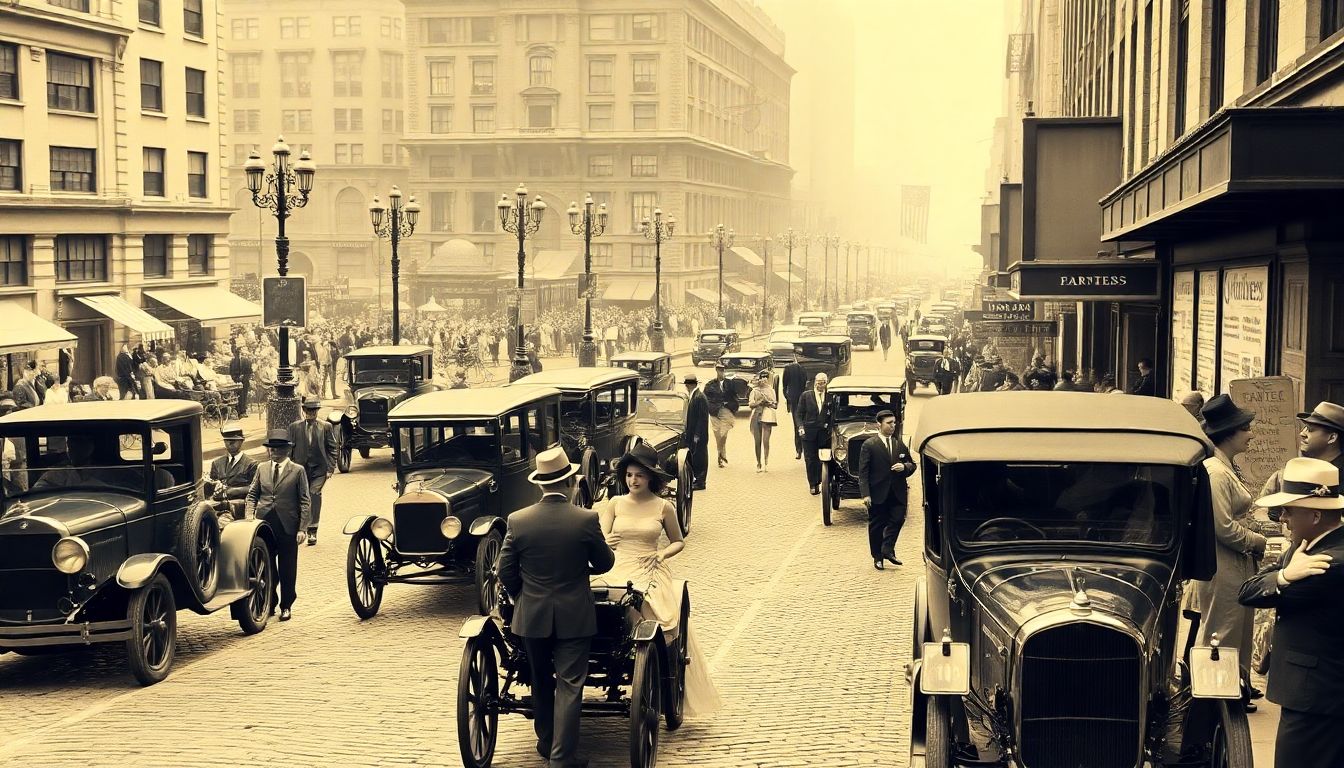
1923: A World on the Brink - Unearthing the Pivotal Moments of a Transformative Year
Imagine a loaf of bread costing billions of marks. Sounds crazy, right? That was 1923 in Germany! This year wasn't just another trip around the sun; it was a turning point. Politics shifted, cultures blossomed, and the world changed in ways we still feel today. Let's dig into the events of 1923 and see why it matters. This article aims to explore the key events of 1923, to understand their legacy.
The Tumultuous Political Landscape
The world was shaky after World War I. Many countries struggled to find their footing. Economic problems and new political ideas caused conflict. It was a tense time!
Hyperinflation in Weimar Germany
Germany faced a huge problem: hyperinflation. Basically, money became worthless. The government printed more money to pay its debts. But this only made things worse. Prices skyrocketed. People needed wheelbarrows full of cash to buy groceries. Savings vanished. The crisis hurt daily life. Also, it fueled political anger and instability.
The Rise of Fascism in Italy
Benito Mussolini grabbed power in Italy. He and his Fascist party promised order and strength. Through force and intimidation, they silenced critics. They consolidated power. Key events, like the March on Rome, scared the government. Fascism gained control. This rise changed Italy and influenced other countries too.
Political Instability in Post-War Europe
Europe was full of tension. Old empires collapsed. New nations emerged. Borders were redrawn. Countries like Poland and Czechoslovakia struggled to survive. International relations were fragile. The seeds of future conflicts were being sown. Did you know, this instability directly caused WWII?
Cultural Flourishing and Innovation
Despite political problems, art and culture thrived. New ideas blossomed, and artists pushed boundaries. It was an exciting time for creativity. New stuff was coming into the world.
The Harlem Renaissance Gains Momentum
Harlem, New York became a center of Black culture. Writers like Langston Hughes and Zora Neale Hurston emerged. Jazz music exploded in popularity. The Harlem Renaissance celebrated Black identity. It challenged racial stereotypes. This movement had a lasting impact on American art and society.
Modernist Literature and Art
Modernism changed art. Writers like James Joyce experimented with new styles. Artists such as Pablo Picasso broke from tradition. Modernist works explored themes of alienation and change. They reflected the uncertainty of the modern world. New ways of doing things became the norm.
Technological Advancements
1923 saw some cool inventions. New radios made broadcasting better. Cars became more common. These technologies changed daily life. They connected people in new ways. What if we didn't develop the radio then?
Global Events and Their Ripple Effects
Big events outside Europe also shaped the year. These events had long-lasting consequences around the world. The world was more connected than ever.
The Great Kanto Earthquake
Japan was hit by a massive earthquake. The Great Kanto Earthquake devastated Tokyo and Yokohama. Thousands died. The quake destroyed buildings and infrastructure. Japan's economy suffered. The disaster also led to social and political upheaval. Rebuilding took years.
Developments in the Middle East
The Middle East was changing. Nationalism was growing. Colonial powers like Britain and France still had influence. Countries like Egypt and Turkey sought independence. Oil became important. These changes shaped the modern Middle East.
Social Changes and Shifting Norms
Society was changing fast. Old rules were questioned. New lifestyles emerged. It was a time of social upheaval and excitement.
The Roaring Twenties Lifestyle
The 1920s were known as the "Roaring Twenties." Jazz music was everywhere. Flapper dresses were the rage. People danced and partied. Social norms were loosened. This decade celebrated youth and freedom. Times really were changing, weren't they?
The Women's Rights Movement
Women continued to fight for equal rights. The women's rights movement pushed for voting rights and equal opportunities. Progress was made in some countries. However, challenges remained. The fight for equality wasn't over.
Labor Movements and Social Unrest
Workers protested for better wages and conditions. Labor strikes occurred in several countries. Social unrest reflected economic inequality. People demanded change. Labor movements fought for workers' rights.
Conclusion
1923 was a year of huge change. Germany faced hyperinflation. Fascism rose in Italy. The Harlem Renaissance thrived. An earthquake devastated Japan. The Roaring Twenties transformed society. All these events shaped the 20th century and beyond. This pivotal year shows us how interconnected our world is. It reminds us that even in times of crisis, culture and innovation can flourish.